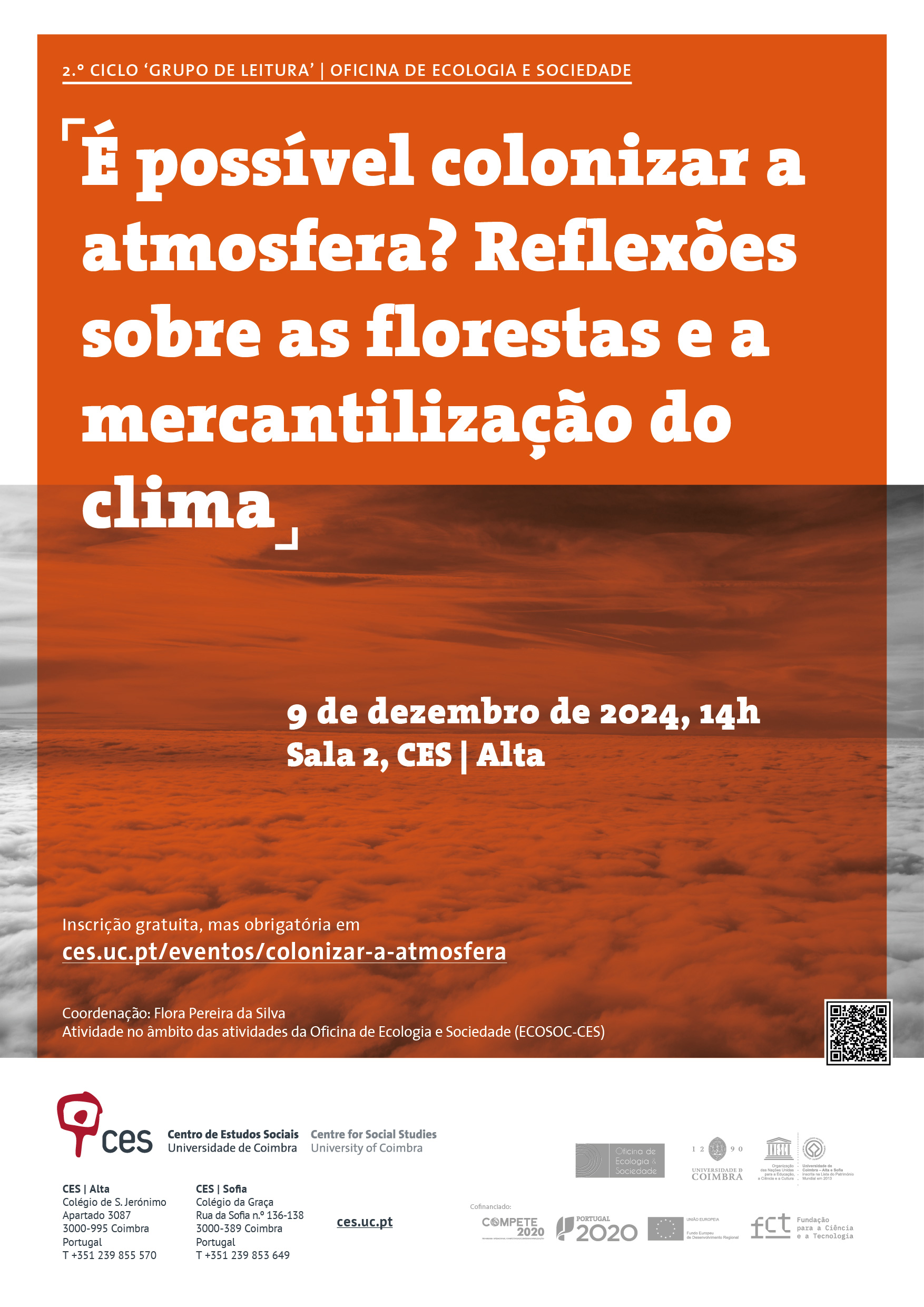Political Ecology Reading Group
Is it possible to colonize the atmosphere? Reflections on forests and the commodification of climate
December 9, 2024, 14h00
Room 2, CES | Alta
Is it possible to colonize the atmosphere? This session aims to discuss the commodification of climate, looking closely at the carbon credit market. In the context of forests, such mechanisms have been denounced by territorial and indigenous movements for being empty or weak in community participatory processes, for not distributing the credit generated, and for instilling sanctions on the people who live in the forest, and are prevented from accessing the natural resources to which their life, culture and subsistence are linked to. The articles presented reflect on the coloniality of conservation and on how the logic of such projects often reproduces the model that gave rise to the climate problem we are experiencing, transforms carbon into a new major commodity, and relegates forests (and their organic capacity to regulate the planet's air) to empty spaces, objects of an extractive policy, as resources to be exploited and exhausted, or as untouchable.
Readings:
Okereke, C., & Dooley, K. (2010). Principles of justice in proposals and policy approaches to avoided deforestation: Towards a post-Kyoto climate agreement. Global Environmental Change,20(1), 82–95
Simone Lovera‐Bilderbeek & Souparna Lahiri, 2021. "Addressing power imbalances in biosequestration governance," Global Policy, London School of Economics and Political Science, vol. 12(S1), pages 57-66, April.
Registration is free, but mandatory
Coordination: Flora Pereira da Silva


